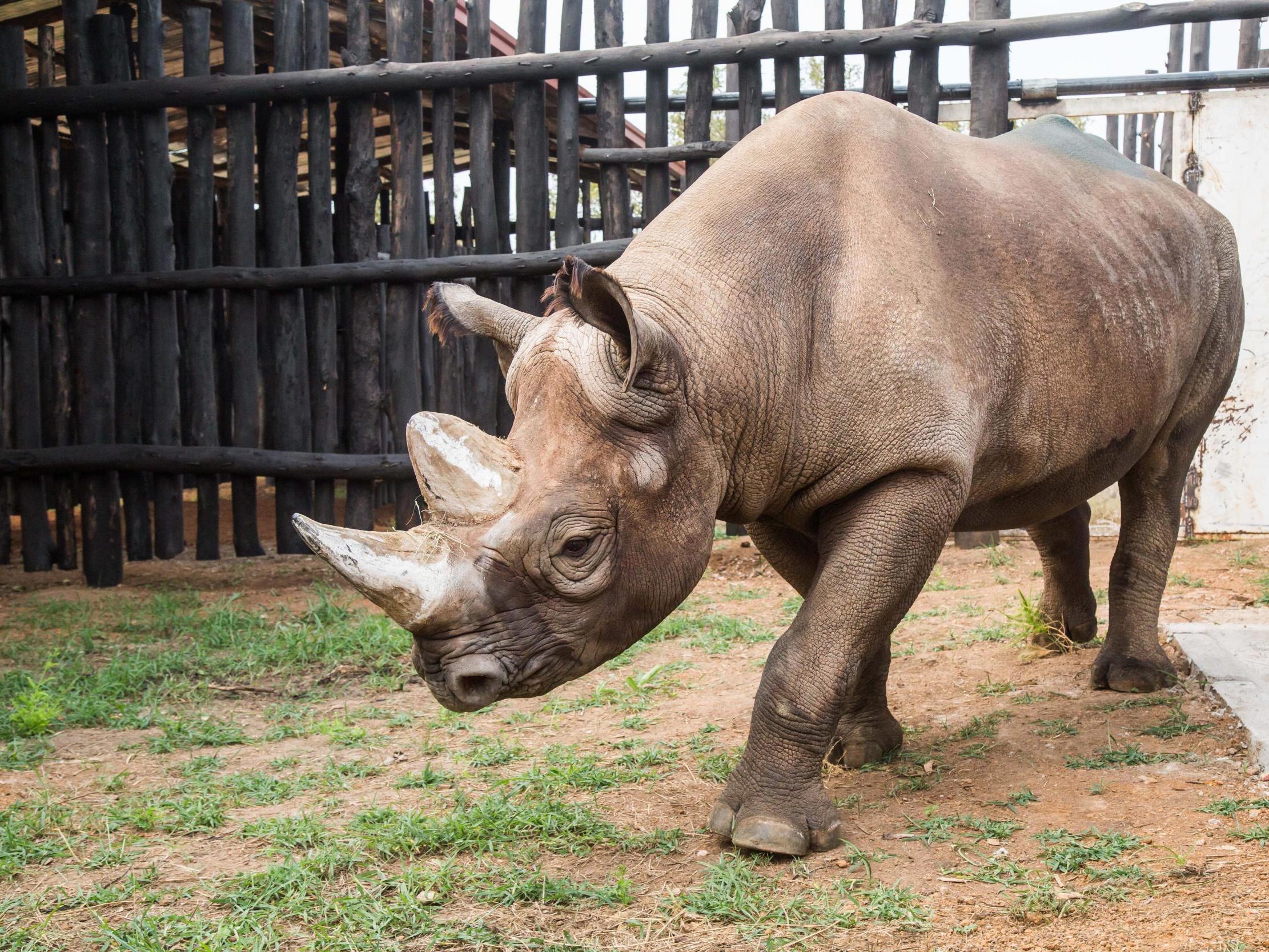Rhinos travel 6,000km to Rwanda national park in largest transportation of its kind
‘Historic’ journey returns descendents of rhinos originally taken from Africa decades ago

Your support helps us to tell the story
From reproductive rights to climate change to Big Tech, The Independent is on the ground when the story is developing. Whether it's investigating the financials of Elon Musk's pro-Trump PAC or producing our latest documentary, 'The A Word', which shines a light on the American women fighting for reproductive rights, we know how important it is to parse out the facts from the messaging.
At such a critical moment in US history, we need reporters on the ground. Your donation allows us to keep sending journalists to speak to both sides of the story.
The Independent is trusted by Americans across the entire political spectrum. And unlike many other quality news outlets, we choose not to lock Americans out of our reporting and analysis with paywalls. We believe quality journalism should be available to everyone, paid for by those who can afford it.
Your support makes all the difference.Five critically endangered eastern black rhinos have been successfully relocated to Rwanda from the Czech Republic in the largest ever transportation of its kind.
The rhinos, who were born and bred in Europe, made the 6,000km journey to live in the East African country’s Akagera National Park.
They are the descendants of black rhinos who were originally taken from Africa decades ago and put in European zoos.
Black rhinos are one of the most critically endangered species in the world with just 5,000 remaining in the wild and only 1,000 eastern black rhinos in Africa, as their species is threatened by poaching for their horns.
The three female and two male black rhinos range from between two and nine years old. Three of them were born in Safari Park Dvur Kralove in the Czech Republic; one is from Flamingo Land in the UK and the other is from Ree Park Safari in Denmark
The rhinos have been donated to the Rwanda Development Board, a Rwandan government body that has a partnership with Akagera National Park.
The project is attempting to supplement Rwanda’s wild rhino population with genetically-robust individuals who have been bred and cared for in Europe.
“By undertaking a highly supervised and well-planned gradual acclimation process, we believe these rhinos will adapt well to their new environment in Rwanda,” Premysl Rabas, director of Safari Park Dvur Kralove, said.
“They will first be kept in bomas – enclosures made by wooden poles. Later, they will enjoy larger enclosures in a specially protected area.
“The final step will be to release them into the northern part of the national park where they will roam free.”
The introduction follows a 2017 project which saw 18 rhinos reintroduced to the park.
In 2015, a group of lions were also reintroduced and have since tripled in number.
Prior to these introductions, the last confirmed sighting of eastern black rhinos in Rwanda was in 2007 after wide-scale poaching saw their numbers decline.
However, authorities have said poaching has practically been eliminated from the park since 2010, making it a suitable destination for the species to be reintroduced.
“We have been preparing for this moment for years and are excited to build on our efforts to revitalise the park with the RDB and the successful introduction of the first round of rhinos in 2017,” said Jes Gruner, park manager at Akagera National Park.
“This transport of five rhinos from Europe is historic and symbolic, and shows what is possible when dedicated partners collaborate to help protect and restore a truly endangered species.”
Join our commenting forum
Join thought-provoking conversations, follow other Independent readers and see their replies
Comments